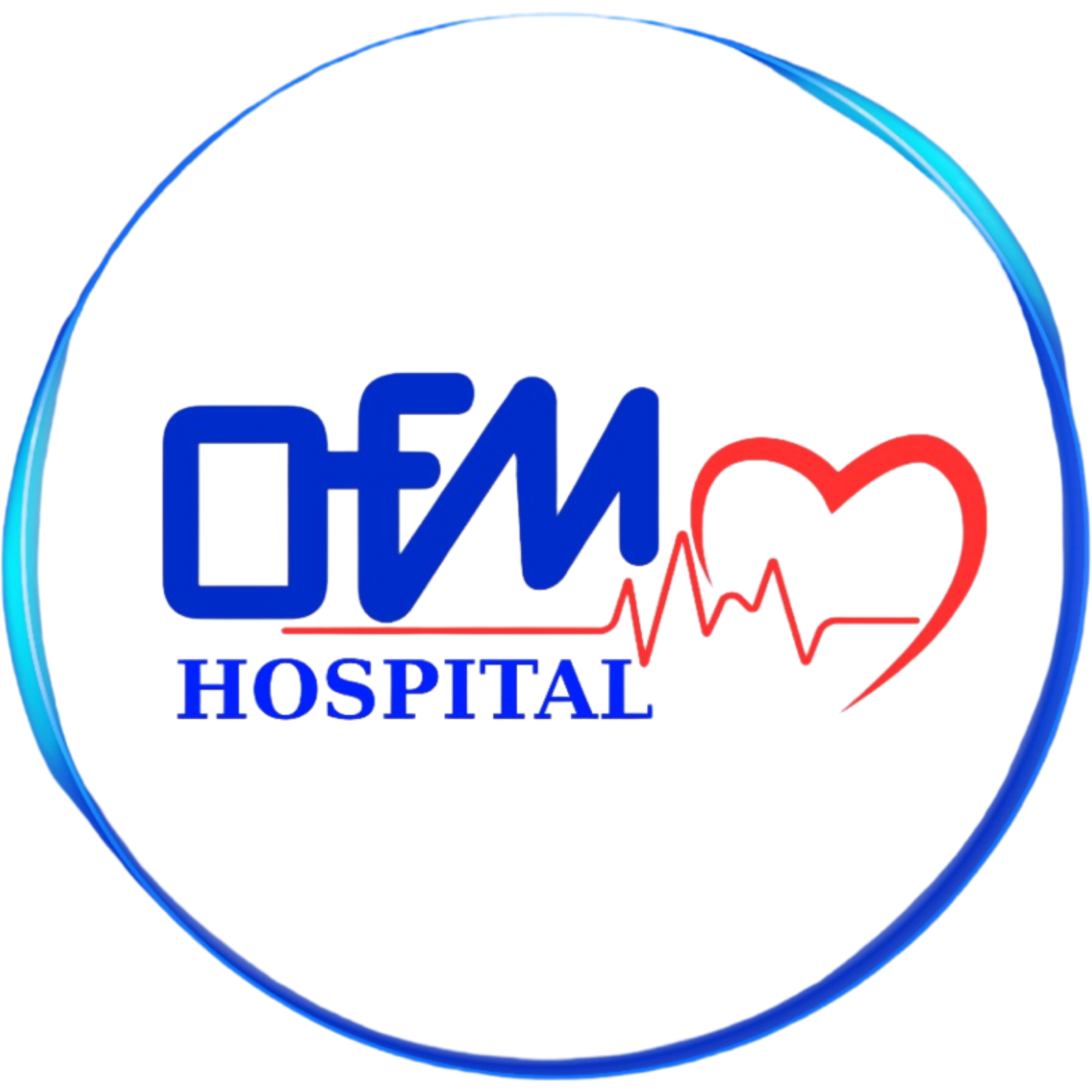Cardiology
- WHAT CONDITIONS DOES CARDIOLOGY TREAT AND HOW IS HEART HEALTH EVALUATED?
- HOW IS CORONARY ARTERY DISEASE DIAGNOSED AND TREATED?
- WHAT ARE ARRHYTHMIAS AND HOW ARE THEY MANAGED?
- HOW ARE HYPERTENSION AND HEART FAILURE TREATED?
- WHAT ARE THE TREATMENT OPTIONS FOR HEART VALVE DISEASES?
- HOW ARE CHEST PAIN AND OTHER CARDIAC SYMPTOMS EVALUATED?
- WHAT MINIMALLY INVASIVE CARDIOLOGY PROCEDURES ARE AVAILABLE?
- HOW TO MAINTAIN HEART HEALTH AND PREVENT CARDIOVASCULAR DISEASE?
Cardiology is the medical specialty dedicated to diagnosing, treating, and preventing disorders of the heart and blood vessels. These conditions can affect circulation, oxygen delivery, heart rhythm, blood pressure regulation, and overall organ function—making early evaluation essential for long-term health.
The field covers a wide range of diseases, including coronary artery disease, arrhythmias, hypertension, heart failure, heart valve disorders, congenital heart defects, and cardiovascular complications related to diabetes or high cholesterol. Symptoms such as chest pain, palpitations, shortness of breath, dizziness, leg swelling, and fatigue often point to underlying heart problems that require professional assessment.
Heart health evaluation begins with a detailed medical history and physical examination. Cardiologists analyze risk factors such as smoking, family history, obesity, stress, high blood pressure, and metabolic conditions. Based on this assessment, they perform diagnostic tests to visualize the heart and evaluate its performance.
Common diagnostic tools include electrocardiography (ECG) to assess electrical activity, echocardiography to examine heart structure and pumping function, stress testing to evaluate performance under exertion, and Holter monitoring for continuous rhythm tracking. More advanced imaging—such as coronary CT angiography or cardiac MRI—may be used when deeper evaluation is needed. Blood tests measuring cholesterol, inflammation markers, and cardiac enzymes help identify risk levels and ongoing injury.
Treatment approaches vary depending on the diagnosis and range from lifestyle adjustments and medication management to advanced interventional procedures performed in coordination with cardiovascular surgery teams when necessary. OFM Hospital’s cardiology department focuses on accurate diagnosis, early intervention, and long-term protection of heart health using modern technologies and evidence-based medical care.
Coronary artery disease (CAD) occurs when the arteries that supply blood to the heart become narrowed or blocked by plaque buildup. This condition reduces oxygen flow to the heart muscle and can lead to chest pain, shortness of breath, fatigue, or, in severe cases, heart attack. CAD is one of the most common and serious cardiovascular disorders, often developing gradually due to factors such as high cholesterol, smoking, hypertension, diabetes, obesity, or genetic predisposition.
Diagnosis begins with a detailed symptom assessment and physical examination, followed by essential tests that evaluate blood flow and identify the severity of blockage. An electrocardiogram (ECG) can reveal changes in heart rhythm or evidence of previous injury. Stress testing, performed through exercise or medication, helps determine how well the heart functions under increased workload. Echocardiography evaluates heart pumping strength and detects areas of weakened muscle that may indicate reduced blood supply.
For more precise visualization, cardiologists may request coronary CT angiography, a non-invasive imaging method that shows plaque buildup and arterial narrowing. In cases where symptoms are severe or tests suggest significant obstruction, coronary angiography—an invasive procedure using dye and X-ray imaging—provides the most accurate assessment of coronary arteries.
Treatment depends on the severity of the disease. Early-stage CAD is often managed with medications such as antiplatelet agents, cholesterol-lowering drugs, beta-blockers, ACE inhibitors, or nitrates to improve blood flow and prevent further plaque buildup. Lifestyle changes—including dietary adjustments, regular exercise, smoking cessation, and weight control—play a critical role in slowing disease progression.
When significant arterial blockage is present, interventional procedures may be required.
-
Percutaneous coronary intervention (PCI) with balloon angioplasty and stent placement opens narrowed arteries and restores blood flow.
-
Drug-eluting stents help prevent re-narrowing after the procedure.
-
If multiple or complex blockages exist, patients may be referred to cardiovascular surgery for coronary artery bypass grafting (CABG).
With proper diagnosis and individualized treatment, most patients with CAD experience substantial improvements in symptoms, energy levels, and long-term heart health. At OFM Hospital, cardiologists and cardiovascular surgeons work together to provide comprehensive care using modern diagnostic tools and advanced treatment techniques.
Arrhythmias are disorders of the heart’s electrical system that cause the heartbeat to become too fast, too slow, or irregular. While some arrhythmias are harmless, others can lead to serious symptoms such as palpitations, chest discomfort, dizziness, fainting, shortness of breath, or, in severe cases, stroke or cardiac arrest. The most common types include atrial fibrillation, supraventricular tachycardia (SVT), ventricular arrhythmias, and bradycardia caused by electrical conduction problems.
Diagnosis begins with a thorough evaluation of symptoms and a detailed cardiac examination. Electrocardiography (ECG) is the first-line test, providing an instant snapshot of the heart’s electrical activity. Because many arrhythmias are intermittent, patients may be monitored through Holter monitoring (24–48 hours) or event recorders for longer periods to capture irregular rhythms. In more complex cases, electrophysiology studies (EPS) are performed to map electrical pathways inside the heart and determine the precise source of the arrhythmia.
Treatment depends on the type, frequency, and severity of the rhythm disorder. Many patients benefit from medication therapy, including antiarrhythmic drugs, beta-blockers, calcium channel blockers, or anticoagulants (when stroke risk is elevated, as in atrial fibrillation). Lifestyle modifications—such as reducing caffeine, alcohol, and stress—help prevent episodes in sensitive individuals.
For arrhythmias that do not respond to medication or significantly affect daily life, interventional procedures offer highly effective solutions.
-
Catheter ablation uses radiofrequency or cryotherapy to destroy the abnormal electrical pathway causing the arrhythmia. It is one of the most successful and minimally invasive treatments for atrial fibrillation, SVT, and many other rhythm disorders.
-
Patients with dangerously slow heart rates or conduction problems may require a pacemaker, a small device implanted under the skin that regulates heartbeat.
-
For life-threatening ventricular arrhythmias, an implantable cardioverter-defibrillator (ICD) may be recommended to prevent sudden cardiac arrest.
Long-term management includes regular follow-up visits, rhythm monitoring, blood tests, and lifestyle guidance. With modern treatments and early intervention, most patients with arrhythmias lead stable, active, and symptom-free lives.
At OFM Hospital, our cardiology team uses advanced diagnostic tools and cutting-edge electrophysiology techniques to deliver precise evaluation and effective treatment for all types of heart rhythm disorders.
Hypertension and heart failure are two of the most common and closely related cardiovascular conditions. Although they affect the heart in different ways, both conditions require long-term management and careful monitoring to prevent organ damage, hospitalization, and serious complications.
Hypertension (High Blood Pressure)
Hypertension occurs when the force of blood against the artery walls remains persistently elevated. Over time, this pressure damages blood vessels, stresses the heart, and increases the risk of stroke, kidney disease, and coronary artery disease. Many patients do not experience symptoms, which is why hypertension is often called a “silent threat.”
Diagnosis is made through repeated blood pressure measurements and evaluation of risk factors such as age, family history, diabetes, high cholesterol, obesity, and lifestyle habits. Additional tests—including blood analysis, urine tests, ECG, and echocardiography—may be used to assess organ impact.
Treatment focuses first on lifestyle modifications, such as reducing salt intake, maintaining a balanced diet, exercising regularly, losing excess weight, managing stress, and avoiding smoking and excessive alcohol. If lifestyle adjustments are insufficient, cardiologists prescribe medications such as ACE inhibitors, ARBs, beta-blockers, calcium channel blockers, or diuretics. These therapies help control blood pressure, protect the heart, and reduce long-term risks.
Heart Failure
Heart failure occurs when the heart cannot pump enough blood to meet the body’s needs. It may result from conditions such as coronary artery disease, hypertension, valve disorders, arrhythmias, or previous heart attacks. Symptoms include shortness of breath, swelling in the legs, fatigue, rapid weight gain, and reduced exercise capacity.
Diagnosis involves a comprehensive assessment using echocardiography, which evaluates heart pumping strength (ejection fraction), along with ECG, chest X-rays, cardiac MRI, and blood tests such as BNP levels. These tools help determine the cause and severity of heart failure.
Treatment typically includes medication therapy, such as ACE inhibitors, ARBs, beta-blockers, diuretics, aldosterone antagonists, and newer medications like SGLT2 inhibitors. These drugs help reduce symptoms, improve heart function, and lower the risk of hospitalization. Patients also receive guidance on fluid and salt restriction, weight monitoring, and lifestyle changes.
For patients with advanced disease or persistent symptoms, device-based treatments may be necessary.
-
Cardiac resynchronization therapy (CRT) improves coordination of the heart’s pumping chambers.
-
Implantable cardioverter-defibrillators (ICDs) help prevent sudden cardiac arrest.
-
In select cases, referral to cardiovascular surgery teams may be required for valve repair, bypass surgery, or more advanced interventions.
With proper management, most patients achieve significant improvement in daily function and long-term heart health. At OFM Hospital, our cardiology team provides comprehensive care using evidence-based treatments and modern diagnostic technologies.
Heart valve diseases occur when one or more of the heart’s four valves—mitral, aortic, tricuspid, or pulmonary—fail to open or close properly. These valves regulate blood flow through the heart's chambers, and any disruption can affect circulation, oxygen delivery, and overall cardiac function. The two main types of valve disorders are stenosis, where the valve becomes narrowed and restricts blood flow, and regurgitation, where the valve leaks and allows blood to flow backward.
Symptoms vary depending on the severity and progression of the disease. Common signs include shortness of breath, fatigue, chest discomfort, palpitations, dizziness, and swelling in the legs or abdomen. In early stages, valve diseases may be silent and discovered only during routine examinations.
Diagnosis involves a detailed clinical evaluation supported by advanced imaging techniques. Echocardiography is the primary diagnostic tool, allowing cardiologists to visualize valve structure, movement, blood flow patterns, and pressure gradients. Additional tests—such as ECG, chest X-rays, cardiac MRI, or cardiac catheterization—may be used to assess the overall impact on heart function and plan treatment.
Treatment depends on the type and severity of the valve disorder.
In mild cases, medication therapy may help control symptoms, reduce fluid buildup, regulate heart rhythm, and manage blood pressure. However, medications cannot correct structural valve problems; they only help manage the consequences.
When valve disease becomes severe, procedural or surgical intervention is often required. Modern cardiology offers several advanced treatment options:
-
Balloon valvuloplasty: A minimally invasive procedure used primarily for certain stenotic valves, where a balloon is inflated to widen the narrowed valve opening.
-
Transcatheter aortic valve implantation (TAVI/TAVR): A highly effective, catheter-based procedure for patients with aortic stenosis who are not ideal candidates for open-heart surgery.
-
Mitral valve repair or replacement: Used for severe regurgitation or stenosis, restoring proper valve function and preventing long-term heart damage.
-
Tricuspid and pulmonary valve interventions: Depending on the condition, these may involve repair, replacement, or catheter-based techniques.
Surgical options (performed by cardiovascular surgeons) include valve repair—which preserves the natural valve whenever possible—or valve replacement using mechanical or biological prostheses. The choice depends on the patient’s age, overall health, lifestyle, and the specific valve involved.
After treatment, long-term follow-up is essential. Regular echocardiograms, clinical check-ups, and medication adjustments ensure that the repaired or replaced valve functions properly and that complications are prevented. With appropriate care, patients with valve disease often achieve excellent outcomes and improved quality of life.
At OFM Hospital, our cardiology and cardiovascular surgery teams work together to provide advanced diagnostic evaluation and personalized treatment options for all types of heart valve disorders.
Chest pain and other cardiac symptoms are among the most important warning signs that require immediate medical evaluation. Because these symptoms can indicate serious heart conditions—such as coronary artery disease, arrhythmias, valve problems, or heart failure—accurate and timely assessment is essential for preventing complications such as heart attacks or sudden cardiac events.
Chest pain can present in various forms, ranging from pressure, tightness, burning, or heaviness to pain that radiates to the shoulders, arms, jaw, or back. Additional symptoms such as shortness of breath, palpitations, dizziness, fainting, excessive sweating, nausea, swelling in the legs, or reduced exercise capacity may accompany or occur independently of chest pain. Together, these signs help cardiologists identify the underlying condition.
The evaluation process begins with a detailed medical history, reviewing symptom characteristics, duration, triggers, and associated factors. Cardiologists also assess risk elements such as age, smoking, diabetes, high blood pressure, high cholesterol, family history of heart disease, and lifestyle habits.
A focused physical examination follows, including assessment of blood pressure, heart sounds, oxygen saturation, lung function, and peripheral circulation. Based on initial findings, cardiologists select appropriate diagnostic tests, which may include:
-
Electrocardiography (ECG): Identifies rhythm abnormalities and signs of cardiac injury.
-
Blood tests: Detect cardiac enzymes, inflammation markers, and metabolic risk factors.
-
Echocardiography: Provides real-time images of heart structures and pumping strength.
-
Chest X-ray: Assesses lung involvement and heart size.
-
Stress testing: Evaluates how the heart performs under physical or pharmacological stress.
-
Coronary CT angiography: Visualizes coronary artery narrowing.
-
Holter monitoring: Captures intermittent rhythm disturbances.
If tests suggest significant blockage or urgent conditions, cardiologists may recommend coronary angiography for definitive diagnosis and immediate treatment if needed.
The goal of symptom evaluation is not only to rule out life-threatening conditions but also to identify early-stage heart problems before they progress. Many patients with mild or nonspecific symptoms have underlying risk factors that require long-term management.
At OFM Hospital, every patient with chest pain or cardiac symptoms receives comprehensive, fast, and accurate evaluation supported by modern diagnostic technologies and multidisciplinary expertise.
Minimally invasive cardiology procedures—also known as interventional cardiology—offer effective, low-risk solutions for diagnosing and treating many heart conditions without the need for open-heart surgery. These procedures are performed through small punctures in the skin, typically using catheters inserted into blood vessels in the wrist or groin. They provide faster recovery times, fewer complications, and excellent long-term outcomes for suitable patients.
One of the most common procedures is coronary angiography, a diagnostic technique that visualizes coronary arteries using contrast dye and X-ray imaging. It allows cardiologists to detect blockages, evaluate blood flow, and determine whether further treatment is needed. When significant narrowing is found, percutaneous coronary intervention (PCI)—which includes balloon angioplasty and stent placement—may be performed during the same session. Stents, especially drug-eluting ones, keep arteries open and reduce the risk of re-narrowing.
In addition to coronary procedures, interventional cardiology includes treatments for rhythm disorders. Catheter ablation uses radiofrequency or cryotherapy energy to eliminate abnormal electrical pathways responsible for arrhythmias such as atrial fibrillation, supraventricular tachycardia (SVT), and certain ventricular tachycardias. This minimally invasive procedure often provides long-term control or complete resolution of rhythm problems.
Structural heart interventions are another advanced area of interventional cardiology.
-
TAVI/TAVR (Transcatheter Aortic Valve Replacement): A catheter-based technique for treating severe aortic stenosis without open surgery.
-
Mitral valve clip procedures: Used for selected cases of mitral regurgitation to improve valve closure.
-
ASD/PFO closure: Minimally invasive closure of holes in the heart wall to prevent abnormal blood flow or reduce stroke risk.
-
Left atrial appendage occlusion (LAAO): Helps prevent clot formation in patients with atrial fibrillation who cannot take long-term blood thinners.
Other procedures include peripheral angioplasty, carotid artery stenting, and renal artery interventions, addressing vascular problems beyond the heart.
Recovery after most interventional procedures is rapid, often requiring only a few hours of observation or overnight hospitalization. Patients typically experience minimal discomfort and return to daily activities quickly. Follow-up visits help monitor stent function, arrhythmia control, and overall cardiovascular health.
At OFM Hospital, our interventional cardiology team performs a wide range of minimally invasive procedures using advanced technology and evidence-based protocols to ensure safe, effective, and patient-centered care.
Maintaining heart health is one of the most effective ways to prevent cardiovascular disease, which remains a leading cause of illness worldwide. Prevention focuses on controlling risk factors, adopting healthy lifestyle habits, and receiving regular medical evaluations to detect early signs of heart problems.
A heart-healthy lifestyle begins with balanced nutrition. Eating a diet rich in vegetables, fruits, whole grains, lean proteins, and healthy fats helps control cholesterol levels, reduce inflammation, and support overall metabolic health. Limiting saturated fats, processed foods, salt, and added sugars plays a key role in preventing hypertension and coronary artery disease.
Regular physical activity strengthens the heart muscle, improves circulation, and helps maintain a healthy weight. Most adults benefit from at least 150 minutes of moderate-intensity exercise per week, including walking, swimming, or cycling. Strength training and flexibility exercises further support cardiovascular and musculoskeletal health.
Avoiding harmful habits is essential for long-term heart protection. Smoking cessation significantly reduces the risk of heart attacks and strokes, while minimizing alcohol consumption lowers blood pressure and prevents arrhythmias. Managing stress through breathing exercises, mindfulness, and adequate sleep is equally important, as chronic stress can elevate blood pressure and disrupt heart rhythm.
Monitoring and controlling medical risk factors is a central part of prevention. Conditions such as hypertension, high cholesterol, diabetes, and obesity greatly increase cardiovascular risk if left untreated. Regular check-ups allow cardiologists to track blood pressure, glucose, cholesterol, and weight, adjusting treatments or providing guidance when necessary. Early intervention can prevent these conditions from progressing into more serious heart disease.
Routine cardiovascular evaluations—such as ECG, echocardiography, and blood tests—help detect problems before symptoms develop. Individuals with a family history of heart disease, smokers, or those with chronic conditions require even closer monitoring.
Preventive care also includes personalized recommendations based on age, lifestyle, and genetic factors. Some patients may benefit from low-dose aspirin therapy, cholesterol-lowering medications, or structured cardiac wellness programs depending on their risk profile.
By adopting healthy habits, managing medical conditions, and receiving regular heart evaluations, most people can significantly reduce their risk of developing cardiovascular disease. At OFM Hospital, our cardiology team offers comprehensive preventive care, personalized risk assessments, and long-term support to help patients maintain optimal heart health throughout their lives.
Assoc. Prof. Dr. Atakan Yanıkoğlu
Assoc. Prof. Dr. Atakan Yanıkoğlu
Hacettepe University Faculty of Medicine
Medical Education
Akdeniz University Faculty of Medicine
Cardiology Specialization
Karaman State Hospital
Cardiology Specialist
Private Antalya OFM Hospital
Cardiology Specialist
Private Antalya OFM Hospital
Cardiology Specialist
Private Antalya MedicalPark Hospital
Cardiology Specialist
Private OFM Antalya Hospital
Department of Cardiology
Department: Cardiology
Education:
– Hacettepe University Faculty of Medicine
– Akdeniz University Faculty of Medicine (Cardiology Specialization)
E-mail: atakan.yanikoglu@ofmantalya.com
Languages: English
-
Coronary Angiography
-
Coronary Stenting
-
Peripheral Interventions
-
Permanent Pacemaker Implantation
-
Carotid Artery Disease
-
Hypertension
-
Rhythm Disorders
-
Heart Valve Diseases
-
Heart Failure
-
Turkish Society of Cardiology
-
Turkish Medical Association



